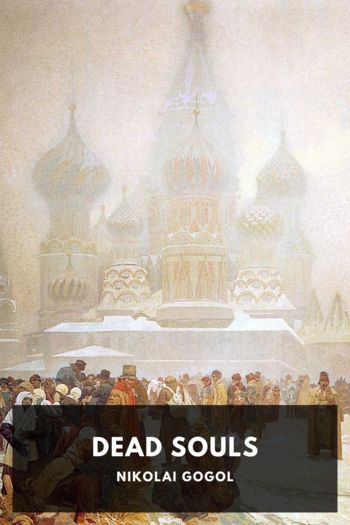Short Fiction - Nikolai Gogol (best selling autobiographies TXT) 📗

- Author: Nikolai Gogol
Book online «Short Fiction - Nikolai Gogol (best selling autobiographies TXT) 📗». Author Nikolai Gogol
Meanwhile the ghost extended his depredations to the other side of the Katinka Bridge, and spread dismay and alarm in the whole of the quarter.
But now we must return to the Superintendent, who is the real origin of our fantastic yet so veracious story. First of all we must do him the justice to state that after Akaki’s departure he felt a certain sympathy for him. He was by no means without a sense of justice—no, he possessed various good qualities, but his infatuation about his title hindered him from showing his good side. When his friend left him, his thoughts began to occupy themselves with the unfortunate titular councillor, and from that moment onwards he saw him constantly in his mind’s eye, crushed by the severe reproof which had been administered to him. This image so haunted him that at last one day he ordered one of his officials to find out what had become of Akaki, and whether anything could be done for him.
When the messenger returned with the news that the poor man had died soon after that interview, the Superintendent felt a pang in his conscience, and remained the whole day absorbed in melancholy brooding.
In order to banish his unpleasant sensations, he went in the evening to a friend’s house, where he hoped to find pleasant society and what was the chief thing, some other officials of his own rank, so that he would not be obliged to feel bored. And in fact he did succeed in throwing off his melancholy thoughts there; he unbent and became lively, took an active part in the conversation, and passed a very pleasant evening. At supper he drank two glasses of champagne, which, as everyone knows, is an effective means of heightening one’s cheerfulness.
As he sat in his sledge, wrapped in his mantle, on his way home, his mind was full of pleasant reveries. He thought of the society in which he had passed such a cheerful evening, and of all the excellent jokes with which he had made them laugh. He repeated some of them to himself half-aloud, and laughed at them again.
From time to time, however, he was disturbed in this cheerful mood by violent gusts of wind, which from some corner or other blew a quantity of snowflakes into his face, lifted the folds of his cloak, and made it belly like a sail, so that he had to exert all his strength to hold it firmly on his shoulders. Suddenly he felt a powerful hand seize him by the collar. He turned round, perceived a short man in an old, shabby uniform, and recognised with terror Akaki’s face, which wore a deathly pallor and emaciation.
The titular councillor opened his mouth, from which issued a kind of corpse-like odour, and with inexpressible fright the Superintendent heard him say, “At last I have you—by the collar! I need your cloak. You did not trouble about me when I was in distress; you thought it necessary to reprimand me. Now give me your cloak.”
The high dignitary nearly choked. In his office, and especially in the presence of his subordinates, he was a man of imposing manners. He only needed to fix his eye on one of them and they all seemed impressed by his pompous bearing. But, as is the case with many such officials, all this was only outward show; at this moment he felt so upset that he seriously feared for his health. Taking off his cloak with a feverish, trembling hand, he handed it to Akaki, and called to his coachman, “Drive home quickly.”
When the coachman heard this voice, which did not sound as it usually did, and had often been accompanied by blows of a whip, he bent his head cautiously and drove on apace.
Soon afterwards the Superintendent found himself at home. Cloakless, he retired to his room with a pale face and wild looks, and had such a bad night that on the following morning his daughter exclaimed, “Father, are you ill?” But he said nothing of what he had seen, though a very deep impression had been made on him. From that day onwards he no longer addressed to his subordinates in a violent tone the words, “Do you know with whom you are speaking? Do you know who is standing before you?” Or if it ever did happen that he spoke to them in a domineering tone, it was not till he had first listened to what they had to say.
Strangely enough, from that time the spectre never appeared again. Probably it was the Superintendent’s cloak which he had been seeking so earnestly; now he had it and did not want anything more. Various persons, however, asserted that this formidable ghost was still to be seen in other parts of the city. A sentinel went so far as to say that he had seen him with his own eyes glide like a furtive shadow behind a house. But this sentinel was of such a nervous disposition that he had been chaffed about his timidity more than once. Since he did not venture to seize the flitting shadow, he stole after it in the darkness; but the shadow turned round and shouted at him “What do you want?” shaking an enormous fist, such as no man had ever possessed.
“I want nothing,” answered the sentry, quickly retiring.
This shadow, however, was taller than the ghost of the titular councillor, and had an enormous moustache. He went with





Comments (0)